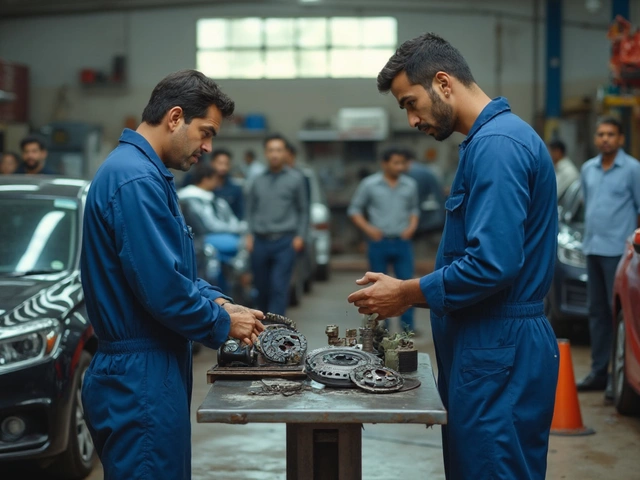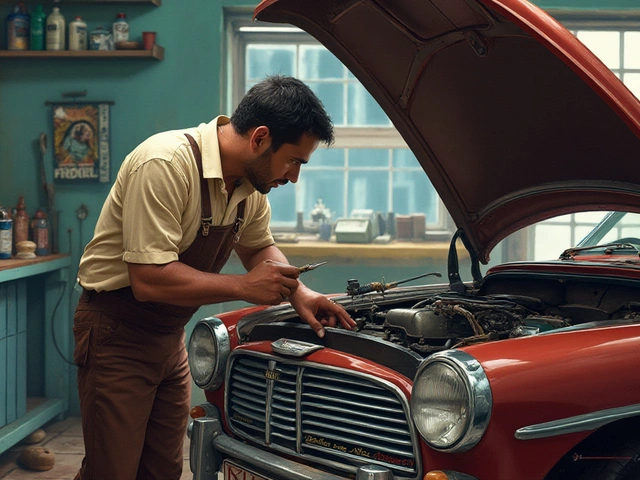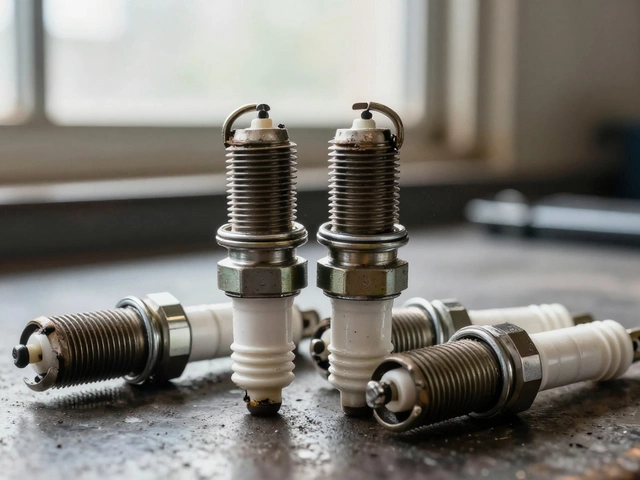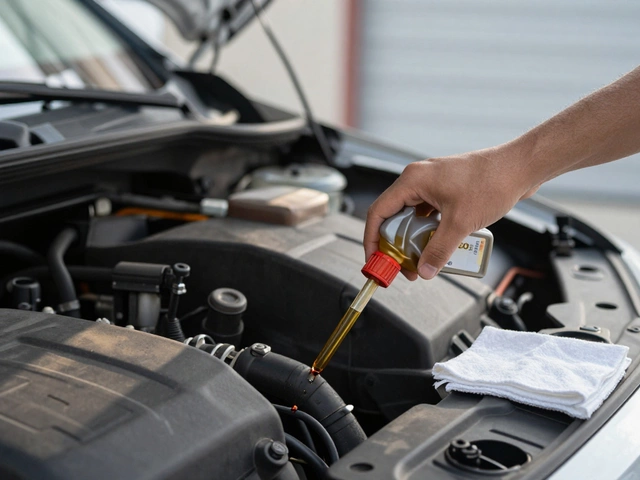
Ever felt like your car has a mind of its own, bouncing around like it's on a trampoline or making odd noises around every corner? That's your suspension trying to get your attention. A car's suspension system might not be something you think about every day, but it's crucial for a smooth and safe driving experience.
Ignoring suspension issues can lead to more than just a bumpy ride. We're talking uneven tire wear, messed-up alignment, and even dangerous driving conditions. Ever wondered what would happen if you had to make a sudden turn with a faulty suspension? It’s not pretty and can be downright risky.
It's easy to miss the signs of a troubled suspension, especially when daily life is as hectic as managing school runs with my kid, Levi. But keeping your suspension in shape doesn’t have to be a chore. Knowing what to look for and how to handle small issues before they become big can save you time and money.
- Signs Your Suspension Is in Trouble
- How Bad Suspension Affects Your Ride
- The Dangers of Ignoring Suspension Issues
- Simple Maintenance Tips for Suspension
- When to Seek Professional Help
Signs Your Suspension Is in Trouble
Driving with bad suspension isn't something you want to ignore. But how do you know if your car’s suspension is giving you a hard time? Here are some telltale signs to keep an eye on:
- Excessive Bouncing: If your car feels like it’s riding on jelly after hitting a bump, that’s your suspension shouting for help. A good way to test is by pressing down on the hood. If it bounces more than a couple of times, you might have a suspension issue.
- Clunking or Knocking Noises: Strange sounds when you’re driving, especially around curves or when braking, can point to worn-out suspension parts like shocks or struts.
- Uneven Tire Wear: Take a closer look at your tires. Are they wearing out more on one side? This could mean your suspension isn’t holding the tires evenly on the road.
- Steering Problems: Feeling some play in the steering wheel or hard steering at low speeds might not just be annoying; it suggests your suspension needs attention.
- Pulling to One Side: If your car drifts to one side while driving, even on a straight road, it could be a sign that the suspension alignment is off.
Wait too long, and these issues can snowball into larger problems. The next time you hear odd noises or feel extra bumps in your ride, think of your car’s poor suspension. It’s crying out for some love!
How Bad Suspension Affects Your Ride
Have you ever thought about what your car's suspension really does? Sure, it smooths out your drive, but it's a lot more important than just that. When your bad suspension starts acting up, you’ll definitely feel it.
First off, control is a biggie. Your suspension system is like the “sense of balance” for your car. When it's on the fritz, your vehicle's stability goes out the window, especially during cornering or when you're on bumpy roads. This can make steering feel unresponsive, almost like trying to control a shopping cart with a busted wheel.
And how about the wear and tear? A wonky suspension leads to uneven tire wear. Think of it like trying to walk around with mismatched shoes; it's just going to wear you down. Over time, this not only hurts your tires but also affects your car's alignment, meaning more frequent trips to the shop.
| Car Part | Impact Due to Bad Suspension |
|---|---|
| Tires | Uneven wear, reduced lifespan |
| Steering | Poor responsiveness |
| Braking | Longer stopping distance |
Then there's the whole comfort factor. Remember the last time you hit a pothole and it felt like an earthquake inside your car? A busted suspension makes every bump a jarring experience, making long drives a real pain—literally. Plus, all that bouncing around isn’t just annoying; it’s distracting, and distractions while driving are never a good idea.
In short, driving with bad suspension is not just uncomfortable; it's risky. The longer you wait to fix it, the more damage it can do to other parts of your car. So, if you notice anything off, don’t brush it under the rug.

The Dangers of Ignoring Suspension Issues
Ever tried driving in a car with bad suspension? Imagine being in a boat on choppy water—it’s not fun, and it's definitely not safe. A faulty suspension isn't just annoying; it can seriously affect your car's handling and safety.
Let's break it down: when your suspension is off, your car's ability to grip the road gets worse. This means that in an emergency, your car might not react as it should. Turns become trickier, and stopping distance increases, which is not what you want when avoiding an accident.
Another not-so-fun fact? Your tires get the short end of the stick. With poor suspension, they wear unevenly, leading to unexpected tire blowouts. This not only burns a hole in your wallet but also puts you at risk on the road.
That’s not all. You might start hearing clunking noises that make every drive feel like you're on a rollercoaster that’s about to fall apart.
Ignoring suspension issues can snowball into other costly repairs. Misalignment and damaged shocks work together to worsen the problem, eventually affecting your steering system. And that’s not cheap to fix.
By staying on top of vehicle maintenance—checking your suspension regularly and addressing any issues—you’re not just saving money; you’re ensuring a safe ride for you and everyone in your car.
Simple Maintenance Tips for Suspension
Caring for your car's suspension doesn’t have to be a daunting task. You don't need to be a mechanic to get it right; just some basic checks and upkeep can keep your ride smooth and safe.
First things first, regularly inspect your tires. Uneven or rapid tire wear is a red flag for bad suspension. Tire rotations every 5,000 to 8,000 miles can help distribute wear evenly. Plus, keeping tires properly inflated not only boosts mileage but also eases stress on the suspension.
- Check your car's ride height. A sagging corner might indicate a damaged spring or shock absorber. It’s like your car has a sore knee.
- Listen for unusual sounds. Clunking or squeaking noises over bumps or during turns could point to worn suspension parts.
- Look for leaks under the car. Fluid on or near the shocks and struts is a sign they might need to be replaced.
Give your shocks and struts some love too. These components absorb lots of rough rides, so give them a visual check for damage or wear. If your car does the bounce-about dance after hitting a bump, it might be time for new shocks.
Keep an eye on the suspension bushings. Worn bushings can lead to alignment issues and a less controlled ride. Replacing these is often a quick fix with lasting benefits.
Feeling more adventurous? Pop the hood and check the suspension mounts. These crucial parts keep everything aligned and secure but can wear over time.
These simple tips can extend your car’s life, ensuring you don’t end up with more costly problems at the garage. And with a bit of effort, you’ll not only save money but also enjoy a much more comfortable and safe driving experience.

When to Seek Professional Help
So, you've felt the weird vibrations or heard some unsettling clunks coming from your car. Sure, having bad suspension is no picnic, but when should you really call in the pros? Here are a few clear signs it's time to let a mechanic have a look.
If your car's constantly pulling to one side, it's not just a quirk of the road. This could indicate uneven suspension wear or alignment issues that need professional attention. Similarly, if you notice your vehicle bottoming out on speed bumps, it's probably time for a check-up.
Don’t ignore loud clunking noises, either. While some sounds might just be loose change rattling around, persistent noises when turning or going over bumps signal potential suspension damage.
Consider knee-jerking or excessive bouncing after going over bumps as warning signs. This might mean your shocks or struts are worn out and need replacing.
- If tyres are wearing unevenly or unusually fast, there’s more than just a balancing issue—they could be a clue that your car suspension is compromised.
- When your steering feels loose or it's difficult to control your vehicle, don’t wait. Bad suspension impacts driving issues that could lead to dangerous situations.
Now, I should mention, even if you're handy with tools, modern cars have complex systems, and messing with the suspension isn’t a DIY job for most folks unless you've got the proper training and equipment. Consult a professional mechanic to keep both you and your car safe.
Keep in mind, regular maintenance can extend the life of suspension parts and save you from unexpected problems down the road. Getting it checked out early not only prevents car safety issues but can also keep your vehicle running smoothly for years.





